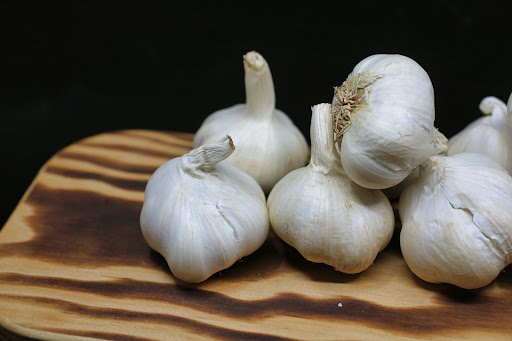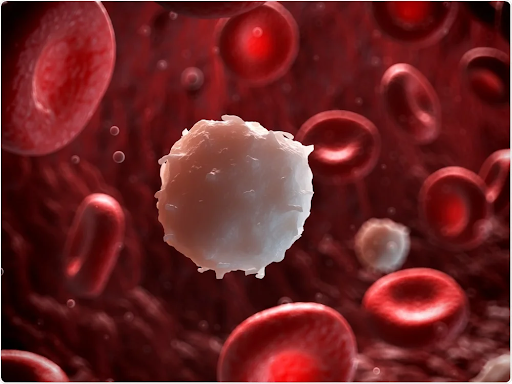If your body has a low white blood cell count, don’t worry. There are some natural ways that can be used to increase the growth of white blood cells in your body.
White blood cells, also known as leukocytes, help protect your body from various infections and illnesses. Lack of these blood cells poses a great risk to your health as it makes you vulnerable to various infections. Generally, low white blood cells can be caused by many factors: Chemotherapy, radiation therapy, certain medications, malnutrition, infection, Tuberculosis, etc.
So, if you are wondering how to increase white blood cells, keep reading. In this article, you will get some concrete and natural ways to increase your white blood cells.
Why Are White Blood Cells Important?
Even though our white blood cells are 1% of the total blood, they still play a key role in the overall functioning of your body.
White blood cells are considered to be a critical part of our immune system. They tend to circulate through your bloodstream and protect the body from various injuries and diseases, using the following tactics:
- Ingesting the foreign bodies and cellular debris
- Producing antibodies
- Destroying infectious agents and cancer cells
If the body has less than usual white blood cells, it can have the opposite impact. Lower white blood cell count reduces your immune system’s ability to fight bacteria and makes you prone to various health conditions.
How To Increase White Blood Cells?
You can use a few natural remedies to increase your body’s white blood cell count.
But, before proceeding further, please note that if you already have an infection or are going through a treatment like Chemotherapy, it’s recommended to consult with your doctor before opting for any remedy to avoid any possible risk.
Here are the simple, yet effective seven ways to increase white blood cells count in your body naturally.
Spinach

Spinach brings along loads of vitamins, nutrients, and antioxidants that can provide many benefits to your body, including the increased production of white blood cells. It’s recommended to consume spinach daily to see its effect.
Just make sure to cook it properly before consumption. Either you can consume spinach directly or add it to your salad.
Broccoli

Broccoli is quite a popular food due to its multiple health benefits and one of them is that it skyrockets your immunity. Broccoli boosts the growth of white blood cells in the body and helps it fight various infections, which has also been proven in many studies.
Experts say that in order to gain the full benefits of broccoli, consume it steamed for only 2-3 minutes.
Garlic

Garlic is another food offering many beneficial properties that can help increase the levels of white blood cells in your body. It consists of various anti-inflammatory and antimicrobial properties and has high amounts of vitamin C, which boosts the growth of white blood cells, and improves the overall immune system.
It’s recommended to consume garlic daily to see its full effects. Crush or chop a small piece of garlic and add it to your food. Or you can also ingest raw garlic if you can bear its strong smell and taste.
Green Tea

How to increase white blood cells? Green tea is the way!
Green Tea is known to be a great source of Polyphenols, which are known to be highly effective in fighting various infections. Green tea also consists of L-theanine, which helps existing white blood cells in the body and also promotes the growth of new ones.
Therefore, try drinking green tea regularly to get its full benefits.
Fruits High In Vitamin C

Many studies have found that Vitamin C has a great contribution to the body’s immune system and the production of white blood cells. For that reason, you add some vitamin C rich foods like oranges, lemons, apples, strawberries, kiwi to increase the white blood cell count in your body.
Zinc

Zinc is one of the vital nutrients your body requires for the proper functioning of the immune system. It aids your immunity by multiplying the T-cells and white blood cells in the body. Many foods are considered an excellent source of white blood cells, some of them includes:
- Meat
- Oysters
- Chicken leg
- Tofu
- Seeds
- Oatmeal
Nuts

Nuts, cashews, almonds, peanuts, etc., are a great source of Vitamin E, which supports your body’s immunity by boosting the growth of germ-killing white blood cells. Consume around 30 grams of nuts in a day. Don’t over consume them as it may lead to other health problems.
What Are Some Signs Of Low Blood Cell Count?
Health experts state that low white blood cells count or Leukopenia has no specific signs, but it can cause some infections that may show the following signs:
- A sore throat
- Tiredness
- Signs similar to flu
- White or red patches in the mouth
- Shortness of breath
- Urine that smells bad or causes discomfort
- Severe cough
- Skin rashes
- Dental problems like toothache
- Swelling or redness around a certain part of the body
- Diarrhea
- Recurring mouth sores
Final Thoughts
A highly nutritious diet is considered one of the most effective ways to increase your body’s white blood cell count. Simply combine any of the food we mentioned in this article with your balanced diet to boost the growth of white blood cells.
However, if you can’t have a proper diet for some reason, you can opt for supplements or antibiotic treatments. Just ensure to talk to your doctor before proceeding further with any medicine.
So, that was all about how to increase white blood cells? Hope this article was helpful to you.
Frequently Asked Questions
Q1.Are Low White Blood Cells Serious?
Yes, they can be because low white blood cells increase your risk of getting infections. And it gets more serious when you catch an infection as your body can’t protect itself effectively, which may lead to severe health conditions.
Q2.Can You Live a Normal Life With Low White Blood Cells?
According to Mayo Clinic, some people can live a healthy life even with a low white blood cell count.
Q3.Should I Worry If My White Blood Cells Count Is High?
High white blood cells in the body can be an indication of inflammation or some infection in the body. In rare cases, it might also be a sign of bone marrow disease or blood cancer. Talk to your doctor to know what your condition actually means.


